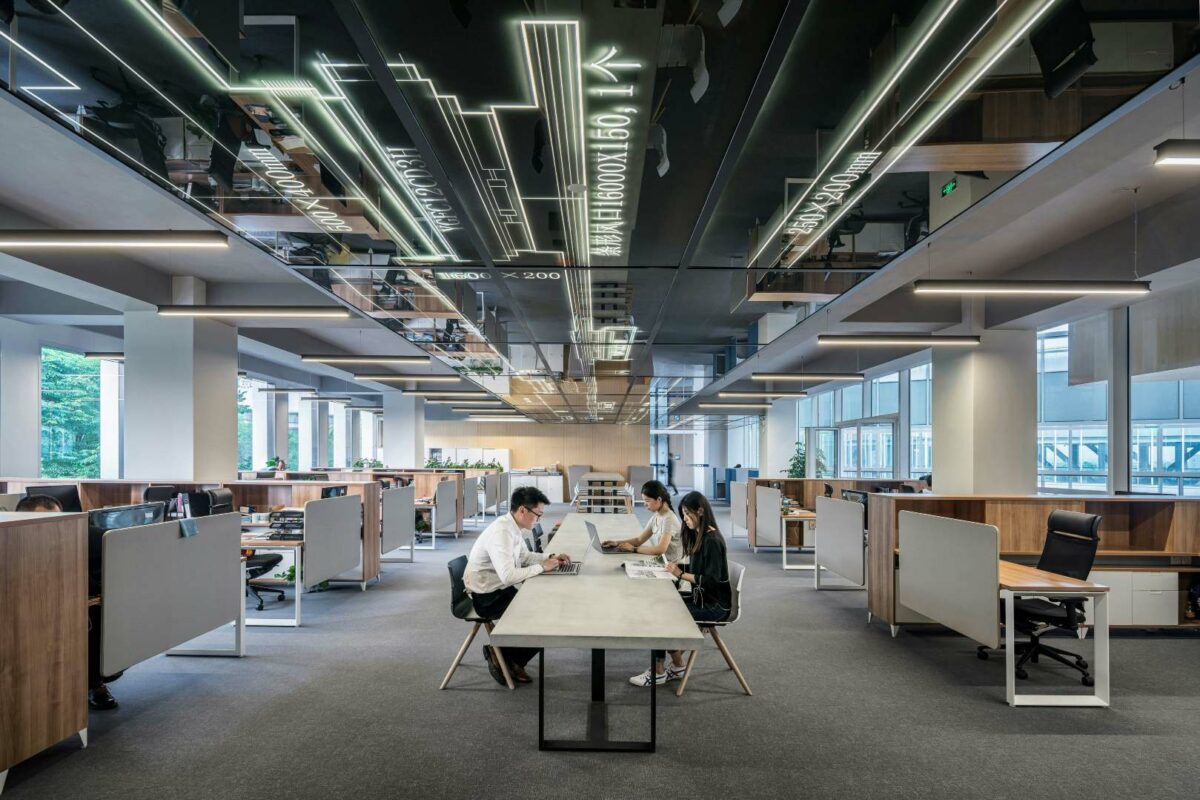2020 has been a year like no other, with COVID-19 wreaking havoc on our lives and livelihoods. Since the nation went into lockdown in March, we’ve grappled with fears for our health, concern for our loved ones and work-related anxieties. Safe to say, it’s been a torrid time, and the evidence suggests it’s seriously impacting our sleep.
According to a study by King’s College London and Ipsos MORI, 63% say they’ve been experiencing worse sleep has been since March, with 39% sleeping fewer hours a night. The study, which is based on 2,254 UK residents aged 16-75, also highlights that it’s the quality, as well as the quantity of our shut-eye that’s been affected. Half of those interviewed reported experiencing more disturbed sleep, while 29% say they’ve felt less rested, despite sleeping more hours.
“COVID-19 is raising our stress and anxiety levels, and there’s a strong correlation between that and disturbed sleep,” explains James Wilson, a sleep expert who counts the NHS, Pret, Zurich and Coca-Cola amongst his clients.
“From an evolutionary point of view, if you are going to bed feeling stressed, your body thinks there must be a reason for this. It doesn’t want you to feel sleepy when it thinks you might need to react to danger, so you’re less likely to produce the sleep-inducing hormone, melatonin.”
Broken nights
James adds that it’s not just the quantity of our sleep that’s a problem right now, it’s also the quality. While some of us are struggling to nod off, many of us are also experiencing broken nights, as well as unusually vivid dreams.
“Some people are having more sleep, but they’re not actually feeling any more rested,” he says. “For some, vivid dreams have become an issue too and, again, this is because we are going to bed with heightened stress levels.
“When we dream, it’s like putting our brains through an overnight counselling session – we’re processing what’s happened that day. Dreams such as being chased by tigers or not being able to check out of a hotel properly are stress dreams – they indicate the fear we all have because we don’t have an answer or solution to the current situation. We might also be drinking more alcohol and watching TV late at night, which can have an impact.”
Another issue is that many of us have changed the structure of our day since lockdown, which can impact on our natural circadian rhythms. As we juggle work with childcare and other responsibilities, we’re often working further into the night, which in turn leads to a later morning start. Not only do we miss the morning exposure to daylight, which is so vital for kickstarting our body clocks, but we expose ourselves to stimulating blue light on our devices, just as we should be easing off to sleep.
The impact on wellbeing
So, what influence does this national wrestle with sleep have on our wellbeing at work, and how does it affect our performance? Regardless of whether we’re currently operating from home or in our usual workspace, James says the impact can be huge.
“Your emotional and cognitive health are closely connected,” says James, who regularly appears on BBC Breakfast, and featured on Channel 4 series, The Secrets of Sleep.
“When you’ve slept well and the world is coming at you, you’re fine. But when you’ve slept poorly, you’re more likely to lose your temper. Something that was easy to handle yesterday is much harder to deal with after a broken night – your emotional responses are less proportionate. We often see this playing out with leaders who are in the public eye. We’ve all watched a football manager lose it at a press conference, or a politician getting angry because he or she is being challenged in an interview.”
And it’s not just our emotional equilibrium that’s affected. Decision making and reaction times are also negatively influenced by poor sleep. Whether you’re a doctor working on the frontline, a business leader or a sportsman, these are essential if we’re to perform at our best.
“From shop floor to top floor, sleep impacts your ability to make the right decision in the moment,” says James. “It’s also the foundation of our health. For example, poor sleep makes you feel hungry quicker and you’ll also take longer to feel full. You’re more likely to crave junk food, and resisting cravings for unhealthy snacks will be harder.”
Vast economic cost
Indeed, it’s no accident that poor sleep costs the UK economy £40bn a year. And that’s in ‘normal’ times. This eye-opening statistic comes from a 2016 study by research firm Rand Europe, which called on employers to promote the importance of sleep.
“The place we work has an impact on how we sleep, and sleep has an impact on the way we work,” says James. “In terms of return on investment, it’s in every organisation’s best interests to put sleep at the centre of their physical and cultural work environment. We need to create spaces that celebrate good sleep, support people in making the right decisions and allow people’s bodies to work in harmony with their circadian rhythms.”
So, what can business leaders, organisations and we as individuals do to improve the quality and quantity of our sleep, boosting our health and performance into the bargain? James believes there are several solutions, ranging from modifications to the physical work environment, to fundamental cultural and lifestyle shifts. And he has invaluable advice for remote workers too…
Create the right culture. “Some leaders celebrate the fact they get by on very little sleep,” says James. “They think they are superhuman, but when you talk to their colleagues, they’ll tell you they are actually making bad decisions. Ultimately, if you have an MD who is sending out emails at 2am, you won’t create a workplace with wellbeing at its core. You’re going to impact people’s mental health and their ability to exercise and eat well. You can install a gym for your staff, but if you’re telling people it’s a good idea to be up at 2am, they won’t be in the right headspace to use that gym.”
Prioritise lighting. “People are often expected to make massive decisions while working on big projects in dimly lit rooms,” says James. “Instead, invest in creating an environment that helps people make the right decisions, by using light to support their level of alertness.
“If access to daylight is limited, consider humancentric or biocentric lighting systems. These use light frequencies that mimic the sun, changing in intensity and colour temperature throughout the day. They help keep people’s body clocks in order, so they are more productive, alert and they sleep better too. Some of these systems even an interact with wearables. They react to how that particular employee feels and adjust the light levels accordingly, to improve their wellbeing.”
Offer stimulating and relaxing spaces. “During the day it’s normal to have periods of alertness, then a lull – your body isn’t designed to be on the go for eight hours,” says James. “Offer employees a relaxing room, with warmer, calming light and an ‘alertness’ room too, with blue light. Research suggests that prolonged exposure to blue light during the day can help them feel more alert, improve reaction times and help them focus too.”
Allow for flexible work patterns. “Organisations can support the sleep of their employees by having flexible work patterns, particularly for members of staff who are not customer-facing,” says James. “This allows people to work around their sleep types – early risers (or larks) can come in early and leave early, and late risers (owls) can come in later and work later. It enables employees to be at work when they are most alert and productive – they’ll get more out of their working day, and organisations will get more in return.”
What about remote workers? Here are James’ top tips to help you stay well rested and productive…
1. Separate work and sleep. “If you work in your bedroom, create a break between the workspace and the sleep space,” says James. “At night, put a sheet over your workstation, or remove your laptop from the room. You need to be as relaxed as possible before bed, to improve the quality and quantity of your sleep.”
2. Stick to a sleep timetable. “Our daily routines may have changed throughout the pandemic but, when it comes to sleep, our bodies love consistency,” says James. “The best way to drive this is through wake-up time. A consistent wake-up time, with no more than an hour-and-a-half lie in, leads to a consistent sleep time. To help this process and for your body understand when it’s time to be awake, lots of natural daylight earlier in the day is also massively beneficial.”
3. Get outside in the morning. “Exposure to natural light earlier in the day kickstarts your body clock and helps you sleep better at night. When I work with night owls, who struggle to get up when it’s dark in the winter, I often suggest having a sunshine alarm clock and using a light box as they eat breakfast. The light box produces a stimulating light that allows the body to realise it’s daytime.
“In the winter, you often see commuters nodding off on the tube on their way to work. That’s because they get up in the dark, then they go underground. Their body hasn’t been exposed to enough light – it hasn’t been given the signal that it’s time to wake up.”
4. Wind down before bed. “You might be working until later because you’re looking after the children during the day, but your body still needs decompression time. Spend 45 minutes to an hour doing something relaxing before you go to sleep. This is time to focus on dropping your heart rate and core temperature. Read something relaxing or try apps like Calm or Headspace. The guided meditations and breathing exercises are great tools for dropping your heartrate, which is an important part of the pre-sleep routine.”
5. Keep your environment consistent. “If light or noise conditions change during the night, your brain registers that the environment is different when you come out of a sleep cycle,” says James. “As a result, it thinks you need to wake up. So, don’t go to bed with the TV on an automatic switch off timer, and use blackout blinds or an eye mask to control the early morning light. White noise can help too, because it blocks out sound, whether that’s cars outside or your partner snoring. When I work with hotels in noisy areas, we’ll often suggest offering it in the bedrooms.”
6. Drop your temperature. “Before bed, have a shower or put your bare feet on a hot water bottle. Your core temperature will rise, then drop, which helps you produce melatonin.”
For more information on how to improve your sleep, click here.
James Wilson is a sleep behaviour expert, who assists individuals and corporations in making changes to their culture, behaviours and environments, to enable better sleep. For more information, click here.

Sophie Barton
Sophie Barton is our Features Editor. She a journalist and editor with 20 years’ experience in the national media, specialising in wellbeing and lifestyle.




